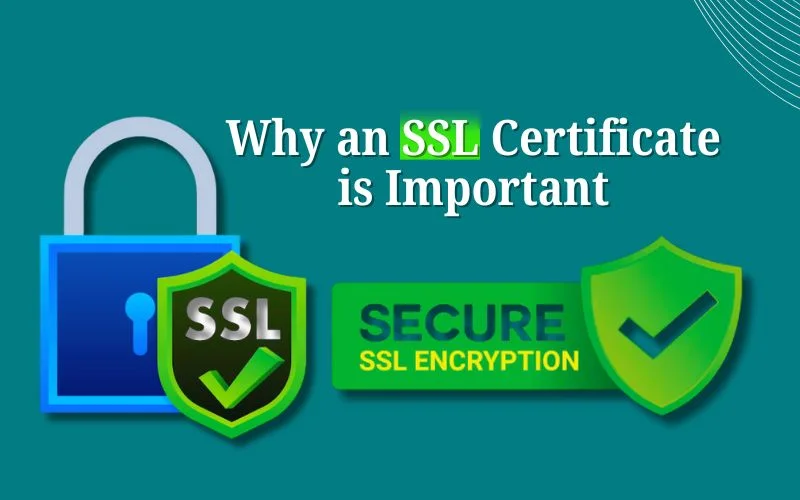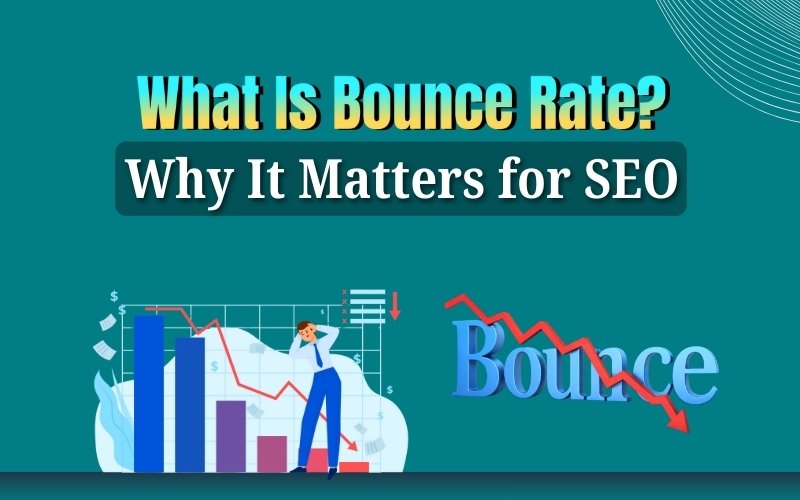If you own a WordPress website, you’ve probably heard the term SSL certificate before. But what exactly is it, and why is it so important for your website? In today’s digital world, website security isn’t just a luxury—it’s a necessity. SSL certificates help keep your site secure and trusted by visitors, and they even improve your visibility in search engines.
In this blog, we’ll break down what an SSL certificate is, why it’s essential for your WordPress site, how to install it, and what to do if you face issues.
Why is an SSL Certificate Important?
SSL (Secure Sockets Layer) is a security protocol that encrypts the data transferred between a website and its visitors. When your website has an SSL certificate, all information exchanged—like passwords, personal details, or payment data—is securely encrypted.
You can tell a site has SSL if its URL begins with “https://” instead of just “http://”. You’ll also notice a small padlock icon next to the web address in most browsers. These small changes signal to visitors that your site is secure and trustworthy.
Why is an SSL Certificate Important for WordPress Sites
1. Secures Data Transfer
Whether you’re running a personal blog or a full-fledged eCommerce store, your site likely handles sensitive data. This could include usernames, passwords, email addresses, or even payment details. Without SSL, this information is transferred in plain text, making it easy for hackers to intercept and misuse it.
With SSL, data is encrypted, which protects your visitors and boosts your site’s integrity.
2. Builds Trust with Visitors
Today’s internet users are more cautious than ever. If your site shows a “Not Secure” warning in the address bar, it immediately discourages visitors from interacting with your content, submitting forms, or making purchases.
An SSL certificate reassures users that your site is safe to use. That padlock icon can be the difference between someone bouncing off your site or becoming a loyal visitor.
3. Improves SEO Rankings
Did you know that Google considers HTTPS a ranking factor? In fact, back in 2014, Google officially announced that SSL would contribute to search engine rankings.
While it may not be the single biggest ranking factor, SSL can give you a small but important edge over competitors who don’t have it. More visibility means more traffic, and more traffic means more opportunities for engagement or sales.
4. Essential for Online Payments
If your WordPress site has an online store or accepts donations, SSL is non-negotiable. To be PCI DSS compliant (Payment Card Industry Data Security Standard), you must have an SSL certificate.
Without SSL, your payment gateway may refuse to work, or worse, you may put your customers at risk. Having a secure checkout process builds trust and helps you avoid legal issues.
5. Protects Against Cyber Threats
The internet is full of threats—phishing attacks, malware, data theft, and man-in-the-middle attacks are just a few of the common ones.
SSL helps defend your site by encrypting communication and verifying that visitors are actually connected to the legitimate version of your site—not a fake version created by attackers.
How to Install an SSL Certificate on Your WordPress Site
Installing an SSL certificate isn’t as complicated as it sounds. Here are a few ways to do it:
✅ Free SSL Certificates (Let’s Encrypt)
Many popular web hosting providers like Bluehost, SiteGround, and Hostinger offer free SSL certificates through Let’s Encrypt. These can usually be activated with one click from your hosting dashboard.
✅ Paid SSL Certificates
If you need higher-level validation (for example, Extended Validation SSL), you can purchase a premium certificate from providers like Comodo, DigiCert, or GoDaddy. These often come with a warranty and more advanced features.
✅ Use a Plugin (Really Simple SSL)
WordPress users can also install the “Really Simple SSL” plugin. It automatically detects your SSL certificate and redirects all traffic from HTTP to HTTPS.
Common Issues and How to Fix Them
Once you install SSL, you might encounter a few minor problems. Don’t worry—most are easy to fix.
🔄 Mixed Content Warnings
This happens when some resources (like images or scripts) are still loaded via HTTP, even though your site is on HTTPS. You can fix this by updating the links manually or using a plugin like Better Search Replace to fix all URLs in your database.
🔁 Forcing HTTPS Redirection
To make sure all your site traffic uses HTTPS, you need to force redirection. You can do this via your .htaccess file or through your hosting provider’s dashboard. Plugins like Really Simple SSL also handle this automatically.
⚠️ Plugin Conflicts
Sometimes, certain plugins might not be fully compatible with HTTPS. In such cases, check the plugin documentation or look for alternatives that support SSL.
Final Thoughts About Why is an SSL Certificate Important
An SSL certificate is no longer optional—it’s a must-have for every WordPress website. It secures your visitors’ data, builds trust, improves your SEO, and is essential for any kind of online transaction.
With so many free and easy options available, there’s no reason not to secure your site today. If you haven’t installed an SSL certificate yet, now is the perfect time to take action.
📊 Need A Website Or Web Design & Development Services? Contact Us Today.











